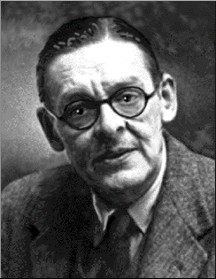
|
Thomas' Temptations in T.S. Eliot's Murder
in the Cathedral |
Eliot's Murder in the Cathedral is, in part, a play about
the dangers of temptations on the way to sainthood. The following are the ways in
which Thomas á Becket is tempted. Note how they structure so many of the concerns
of the play:
Political
Pastoral
- He has the safety of his congregation to be concerned about (180-181,
195).
- He has his congregation's guidance to be concerned with (208).
- He has an ecclesiastical power/office to maintain (206, 211).
Historical
- He is tempted with a return to his past successes (184-185).
- He is tempted to return to a younger, "Spring" of life
(184).
- He is tempted with the fear of being forgotten (192-193).
[Note: The wheel motif (179-180, 193).]
Sainthood
- He could do the right thing in the wrong way (18-189, 192-193).
- He is tempted with despair (194).
- He must abide by the way of suffering (182, 212-213).
- His life must be a testimony to God's purpose for humanity and God's
ultimate control (176-177, 188, 199-200, 208, 211, 220-221).
[Admittedly, this is less a temptation than the larger theological
underpining of the play.]
|
|
